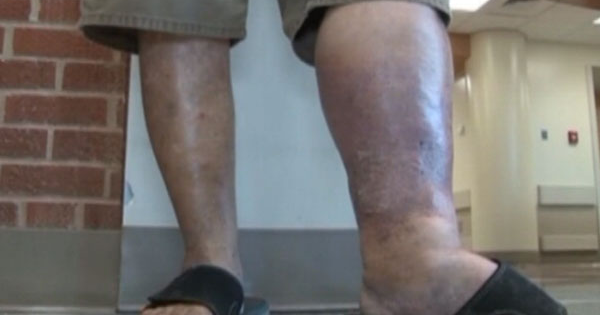Advertisement
With the weather heating up all over the country, doctors are warning everybody to protect themselves against waterbone infections.
Although we’re only in April, there’s already been one reported case of Vibrio vulnificus, or flesh-eating bacteria, and Mycobacterium marinum, Dr. Tim Haman told NBC News.
"As the temperatures warm up, the water warms up, people are wanting to get more out on the water and fish," the infectious disease specialist explained. "During the winter, it's very slow. The other issue is that as the water warms up, the bacterial growth increases in the water, as well."

"Cuts or abrasions or they may get a puncture wound while in the water, stepping on an oyster shell or something like that, and it causes pain and swelling in the involved extremity, but it spreads very fast," Haman said.
The signs of this painful infection generally happen within the first four to six hours and include swelling, redness, and fever.
Depending on how serious the infection is, anybody with Vibrio vulnificus will typically be treated with antibiotics and must have their dead tissue removed.
Mycobacterium marinum skin infections, on the other hand, usually take a little longer to spread.

These serious skin infections can generally be prevented by wearing protective gear in the water at all times or cleaning punctured wounds with a bleach solution.




